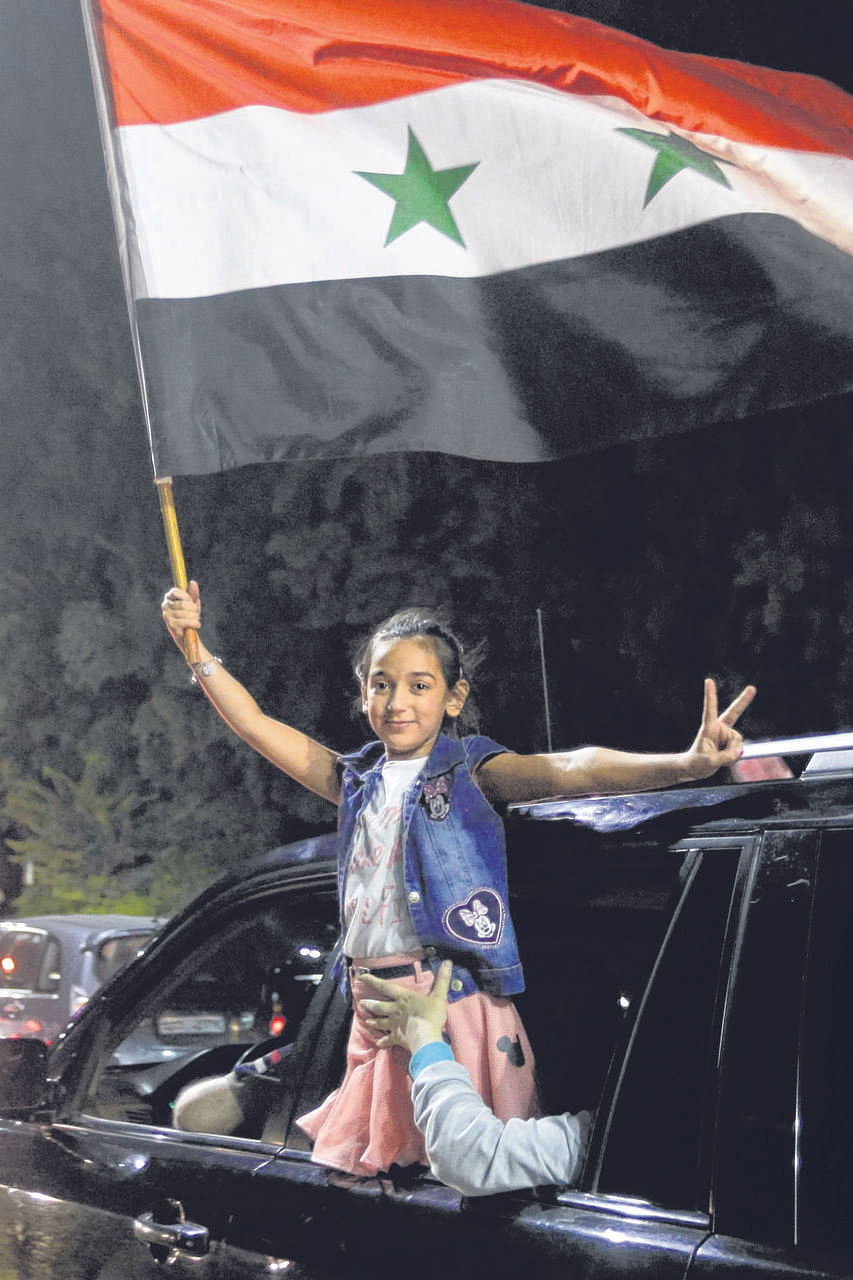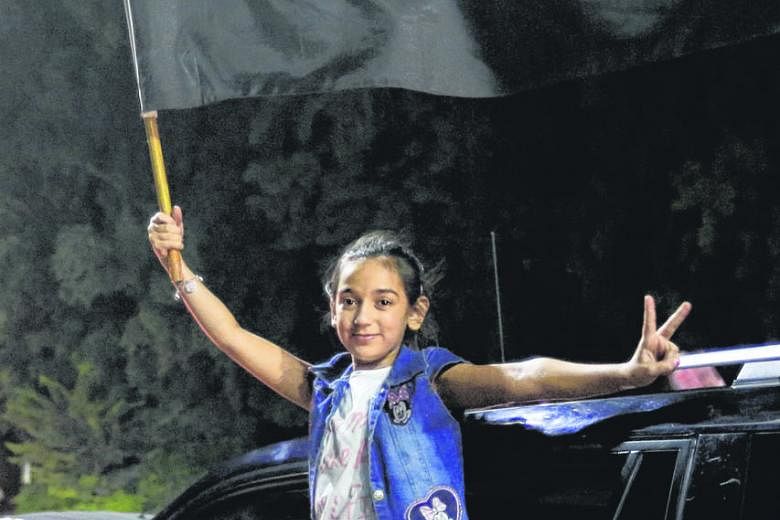There are times when sport crosses all boundaries and transcends all differences.
It happened twice this week. On Tuesday night, the skies across Syria were lit with fireworks and red flares after the beleaguered nation's football team seized an unexpected chance in an attempt to qualify for the 2018 World Cup.
There is work to do yet for the Qasioun Eagles. They qualified for the Asian play-off through a stoppage-time goal in the 2-2 draw against Iran in Teheran, and the "home" leg of Syria's play-off against Australia next month will take place nowhere near home.
The venue has yet to be decided, but is likely to be in Malaysia, some 7,500km from Damascus.
Syria hosts no home games on its own soil because of the civil war that has lasted more than six years. That is why Tuesday was such a very special, very rare, night.
Wednesday in Munich also took sport across the threshold into real life and death issues. It was there, exactly 45 years after the 1972 Munich Olympics massacre, that the German and Israeli governments opened a memorial to the 11 Israeli athletes and the German policeman who died after armed Palestinian terrorists entered the Olympic Village.
"It has taken too long," Germany's President Frank-Walter Steinmeier said at the commemoration ceremony. "It is high time and we owe it firstly to you, the relatives of the victims."

The permanent memorial is cut into a green hill in the city's Olympic Park, in a shape that resembles an open wound.
Munich, indeed, has been a scar on the Olympic movement, negating our hopes that the Games could remain untouched by violence in the world.
Anyone who was there, or was horrified from afar, could not forget Avery Brundage, the American president of the International Olympic Committee (IOC), declaring within 24 hours: "The Games must go on."
And with indecent haste, the Games did resume.
It took 45 years for the relatives to push collective consciences in Germany - where the attempts to end the siege went terribly wrong - to give the victims a memorial. The IOC, now under a more sympathetic leader, Thomas Bach, who happens to be German and a 1976 Olympics gold medallist in fencing, has still not been able to agree to a minute's silence at the opening ceremony to the Games.
The argument is that it would politicise the Olympic movement. As if the march of every country behind their flags is without nationalistic symbolism.
Beyond the politics has to be humanity. Munich's memorial comes after years - decades - of relentless campaigning by the victims' families.
Two in particular never gave up: Ankie Spitzer, whose husband Andre was Israel's fencing coach, and Ilana Romano, wife of the weightlifter Joseph. "They told us we Israelis brought terrorism to German soil," remembers Spitzer.
"We could not give up," said Romano. "We knew our way was right for the future of our children and the next generations."
Their way. Their right. The dilemma for the Olympics wishing to appear neutral on all counts.
Fifa has not, yet, had a comparable terrorist atrocity.
But it crosses the same boundaries as the IOC and attempts the same goodwill to all governance.
To that end, the boundaries of the Middle East are redrawn. Palestine competes in the Asian confederation, Israel comes under Uefa, the European confederation.
That way, the games can go on. But where there is civil war, as in Syria, the games can only be safely played abroad.
Before Tuesday's crucial qualifying match at the Azadi Stadium in Teheran, Iran had already qualified for the 2018 World Cup. Syria surprised everyone by taking the lead after 13 minutes, the first goal Iran had conceded on home soil in 18.5 hours of cumulative play.
Iran then scored twice . But, three minutes into injury time, Syria's Omar Al Soma, running towards the right edge of the penalty box, fired his shot underneath the goalkeeper.
Bedlam broke out. In the stadium, the entire Syrian team and substitutes sank to their knees, as if in prayer.
A Syrian TV commentator became hysterical. "The second goal..." he shouted, "The second goal. Soma, Soma, Soma."
He apologised on air for crying.
Soma, a player who had refused the call to represent Syria for most of the civil war, was the hero.
He, or someone, will need to score again when they face Australia. And even if they knock out the Socceroos, they would have to play one more qualification round, against someone from North America, Central America, or the Caribbean.
It is not impossible that that would be the United States, with all the political baggage such a contest would entail.
But Tuesday was Syria's night. We all saw scenes from Damascus, where giant screens showed Tuesday's game in squares and parks. And where excited revellers brought traffic to a standstill.
It would be naive to think that play stops war. In the real world, Syria remains a deadly, divided state.
Munich and Damascus both touch a chord.
Five months from now, there could be another Olympian test. Pyeongchang in South Korea is due to host the 2018 Winter Games in February.
The city is 80km from the border with North Korea, and who knows where the rhetoric of Kim Jong Un and Donald Trump is leading our world?
Sport, not war? A beautiful thought for the purists.


